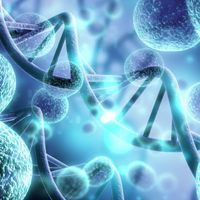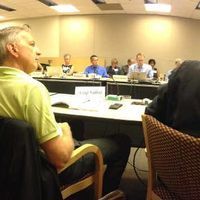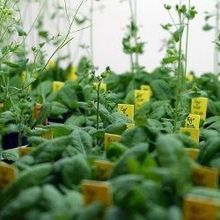germline

Wolbachia Turns 100: The Journey of a Triumphant Endosymbiont
Mariella Bodemeier Loayza Careaga, PhD | Dec 13, 2024 | 10+ min read
In a century, Wolbachia has gone from a master reproductive manipulator to a partner in the fight against pathogens, exemplifying how a microbe can shape hosts and diseases.

Rat Sperm Generated from Stem Cells
Alejandra Manjarrez, PhD | Apr 7, 2022 | 4 min read
Researchers report they were able to make functional sperm in a dish, a feat previously only possible for mice.

No Transgenerational Effects of Chernobyl Radiation Found
Abby Olena, PhD | Apr 22, 2021 | 4 min read
The genomes of the children of people exposed to fallout from the Chernobyl nuclear accident appear to carry no trace of the incident.

The Booming Call of De-extinction
W. S. Roberts | Oct 19, 2020 | 6 min read
Scientists seek to combine genome editing with a technique used in chicken breeding to try to bring back lost birds.

US Senators Call for International Guidelines for Germline Editing
Jef Akst | Jul 16, 2019 | 2 min read
In the wake of reports of CRISPRed babies born in China, a bipartisan resolution “opposes the experiments that resulted in pregnancies using genome-edited human embryos.”

Scientists Push for a Moratorium on Human Germline Editing
Ashley Yeager | Mar 13, 2019 | 3 min read
After the reported birth of CRISPRed babies in China, experts want to take time to consider the scientific, social, ethical, and philosophical consequences of editing heritable human DNA.

Hundreds of Inherited Gene Variants Contribute to Cancer
Abby Olena, PhD | Apr 5, 2018 | 3 min read
In the largest study of its kind to date, researchers find more than 850 rare, heritable genetic alterations that can predispose humans to cancer.

How Geneticists’ Views Compare to the Public’s on Genome Editing
Bob Grant | Oct 22, 2017 | 2 min read
Professionals in the genetics field generally support editing the genomes of somatic cells, mirroring public opinion, but diverge from nonexperts when it comes to germline editing.

Considering Gene Editing
Jef Akst | Jul 12, 2016 | 3 min read
An international committee continues its investigation into the ethical and social considerations of precision DNA editing technology with a public meeting held this morning in Washington, DC.

Mechanism Behind Extreme Longevity in Some Plants
Kerry Grens | May 5, 2016 | 3 min read
Certain plant stem cells rarely divide, a study shows, possibly fending off an accumulation of potentially harmful genetic mutations in some species.
